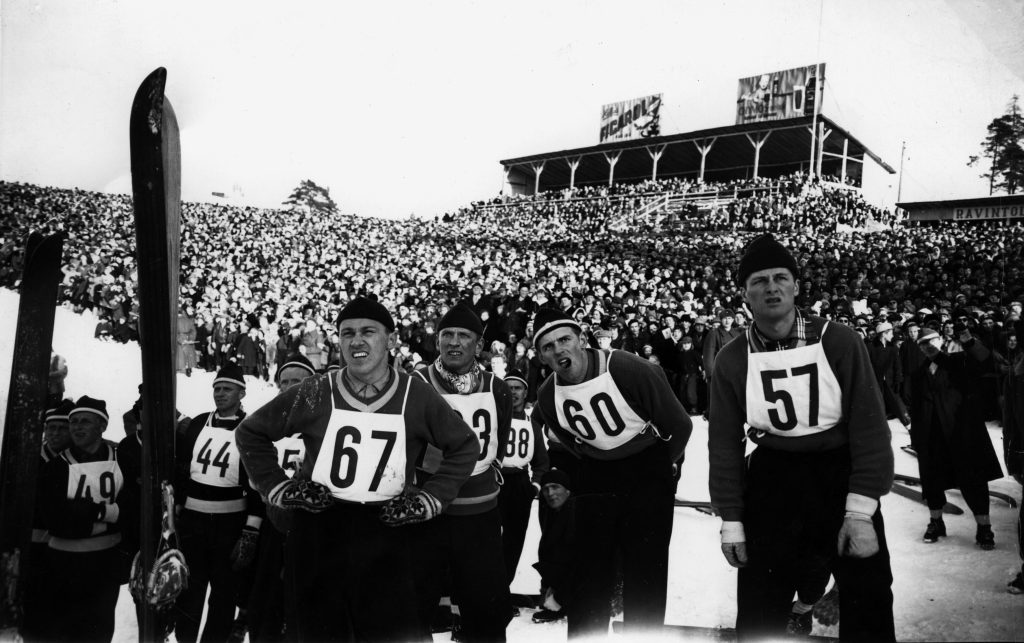Sport and Religion. The historical development from the nineteenth century onwards
Call for Papers
European Studies in Sports History no 18
In Chariots of Fire we could see that the holiness of the Sunday was more important than an Olympic medal for Eric Liddell. What was already an exception then, is out of the question today. The churches have lost their exclusive control for the dominance of Sundays, football has taken over the role of meeting with friends, singing songs everybody seems to know. You never walk alone with your club or your faith. The feeling of community, so long a driving force for the attendance of a holy gathering on the weekend, is taken over by the team spirit in active sports participation or fan behavior. People used to wear a cross as devout Christians, now it seems the fan scarf helps to identify the true believers, for some the gigantic new stadiums have become the church buildings of the twentieth century.
Why have these changes appeared? Were there any real changes? Do modern sports have elements of spirituality that are lost in many modern cultures? Which countries were faster than others in adopting a sport culture at the expense of religious practices? On the other hand, a short prayer or the sign of the cross (or the Muslim equivalent) have become a regular practice in international sports most often televised in football.
In this special edition of European Studies in Sports History we want to explore the change of the attitudes of sportsmen and -women of which the rise of spectator sports and active sports participation – at the expense of religious celebrations and rituals – are a visual manifestation. We are eager to know more about the experiences in different parts of the world (particularly Europe), in any gender role, in active sports participation, spectator sports, or their interactions. Sports are taken here in a very wide sense, including physical activities practiced privately, in sports clubs and Federations, from sports for all to competitive sports, from physical education in the school setting to physical activities in a commercial enterprise. The issue is not limited to the Christian point of view, papers of the experiences and development of other religions are more than welcome. Emphasis should be placed on the historical development, although philosophical, theological, sociological, or psychological aspects might be included if necessary.
The list of potential topics is far from complete and is only supposed to hint into the direction of potential papers:
# Sport, the new religion?
# Women, sport, and religion
# The use of prayer in sports
# Superstition and religious rituals
# The Popes and their relationships to sports
# Are faith-based sports organizations different from the others?
# The pilgrimage between religion, sport, and tourism
# Olympic Games during the Ramadan? The conflicts between sports and religions
# Yoga and Buddhism
# Discrimination of the LGBTQIA+ community in sports and religions
# Sports, religions and nationalism
# What happened to Muscular Christianity?
# De-mystifying sports using television, constant monitoring, and AI
# The mystical of the body and the changing role of training
Please send an abstract of no more than one page including the research question, method, sources, and conclusion plus a short CV on a different file to SportandReligion@mail.de until July 31. As customary in this journal papers in European Studies in Sports History, any European language will be considered. You will be notified of your (non)acceptance shortly thereafter. A thorough peer review of two reviewers will be done with your full paper according to the high standards of this journal.
The final version of the paper should be sent as MSWord file to SportandReligion@web.de no later than November 30, 2024. You will be notified about the (non)acceptance as soon as we have the peer reviews.
Prof. Dr. Arnd Krüger (Georg-August University, Göttingen)
Angela Teja, PhD (SISS, Rome)

